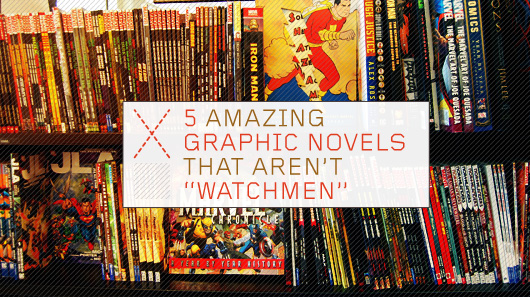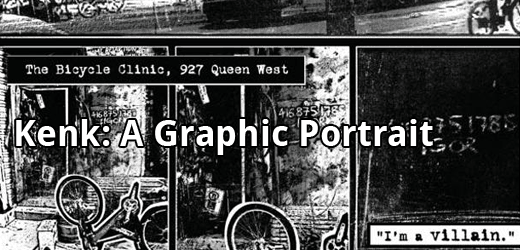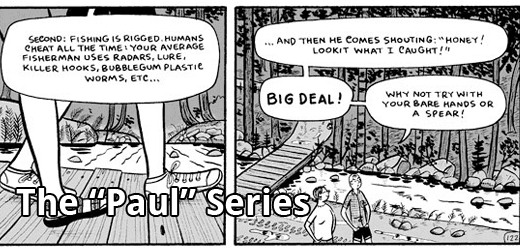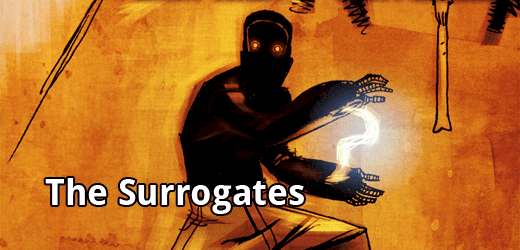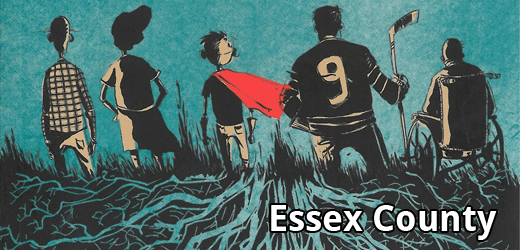I'm sure a lot of people visiting this site have experience with comics in some capacity or another. Whether you read the books as a kid or view the movies as an adult, they're starting to push their ways into our daily consciousness. However, comics aren't just capes and talking animals; they're a medium like any other. While the ability to use pictures and text to drive a narrative doesn't seem like a big deal, comics combine both to tell some amazing stories.
The difference between a “graphic novel” and a “comic book” differs from person to person. Some people use both interchangeably, while others see distinct differences; I choose to see graphic novels as larger narratives that are meant to be published as one (or several) volumes. Comics like Watchmen (perhaps one of the earliest examples of graphic novels) can be published as individual issues, but really, you read it bound together.
But what do you read when you're done with Watchmen? What if you're not looking for something with capes? Well, I've got five of my favorite graphic novels that I think you'll like, which fit a variety of genres.
Kenk: A Graphic Portrait tells us the story of Igor Kenk, Toronto – and perhaps the world's – more prolific bike thief. When he was arrested in July of 2009, police found over 3,000 bicycles in his possession. He was hit with 58 charges relating to bike theft and sentenced to 30 months in jail. More a piece of journalism than a comic, Kenk is wonderfully written.
However, Kenk isn't about the arrest; instead, it is the events leading up to the arrest, and the alternate picture of a perceived scoundrel. Born in Yugoslavia, Igor is depicted as a man the world left behind, who instead of rolling over and dying, grabbed it by the balls and took it back. He's by no means a saint, but Igor makes some good points.
What makes Kenk especially unique is the art style; the project was originally conceived as a documentary, but was instead published in graphic novel format by scanning film stills and manipulating them. The end result resembles a hand-made, photocopied zine, like the underground papers of Igor's volatile homeland. I cannot recommend this enough.
I first picked up Michel Rabagliati's Paul Has A Summer Job at a weird time in my life. I was close to finishing high school and it was one of the few comics the library had. While reading it, I found myself drawn into a deep coming of age story with issues that pertain to any man; Paul lives, loves, grows up and gets married over the course of Rabagliati's books, and the reader grows up with him.
Part of the appeal of the series is the strong French-to-English translation and the passion put into Rabagliati's drawings: it's an autobiography without being preachy. Instead, every man can find something they identify with in Paul, and watch him overcome it.
Rabagliati's work, like the other entries in this column, can be found at comic stores with robust graphic novel sections. His publisher is still in the process of translating his later book, but the three or four that are out now are worth every penny.
Check out the Paul series on Amazon.
While you may have seen last year's film based on this title, I can assure you that the original story is much better. The Surrogates takes place in a hypothetical future where humans go through their daily lives with their consciousnesses embedded in mechanical bodies called surrogates. These “surries” eliminate much of the danger in day-to-day life: firefighters and other servicemen don't risk their lives, and people's physical attractiveness depends on how much they're willing to shell out.
However, one person, an electric-powered villain named Steeplejack, is destroying surrogates under the cover of lightning storms. What ensues is a vicious game of cat and mouse between Steeplejack and the series protagonists: two police officers. Surrogates keeps me interested by providing a strong narrative and an amazing look into the human psyche; one of the officers questions the surrogate system entirely, and and debates going back to his muscle-and-bone body just to feel “alive” again. Powerful stuff.
You'll be able to find The Surrogates easily, due to reprints associated with the movie.
Check out The Surrogates on Amazon.
I seem to be leaning heavily towards Canadian writers in this post, but they tend to be some of my favorites. Essex County is written by Jeff Lemire, an Ontario native who used this 2008 novel to get his start in the comics industry. At the moment, he's writing Sweet Tooth (a post-apocalyptic adventure series) and Superboy for DC Comics. It's great to see guys from your province get work.
Essex County is a testament to living in rural Ontario. However, aside from a presence of hockey and some flashbacks set in Toronto, its values carry over to anyone who's ever lived outside the big city. Published in three volumes, Essex County follows three different people at different times in their lives; a young boy who has just lost his mother, an old man reliving a past of lost love and envy, and his nurse, whose ancestral ties to the region contribute to a greater family tree that involves the previous two characters. While this might seem confusing, Lemire ties this all together wonderfully, and it contributes to a revelation at the end which is strengthened by what we've learned in the leadup. Extremely strong writing in a black-and-white cartooning style. Definitely some deep work.
Originally published in 2008, Essex County can still be found relatively easily in its single-volume format. Expect reprints as Sweet Tooth gains momentum.
Check out Essex County on Amazon.
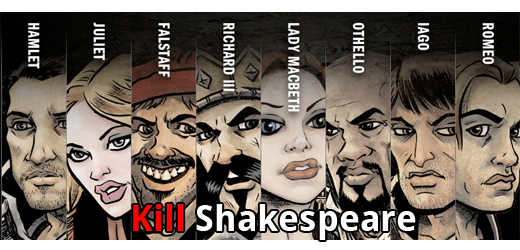
While it sounds like a hokey premise, the real treat is the in-jokes and references to Shakespeare's mythos that find its way into the plot. As a literary geek, I can appreciate this, and if you liked Shakespeare enough in high school/colleges classes, you might as well. If nothing else, Kill Shakespeare will serve as an amazing gift for that theatre geek in your life.
Check out Kill Shakespeare on Amazon.



